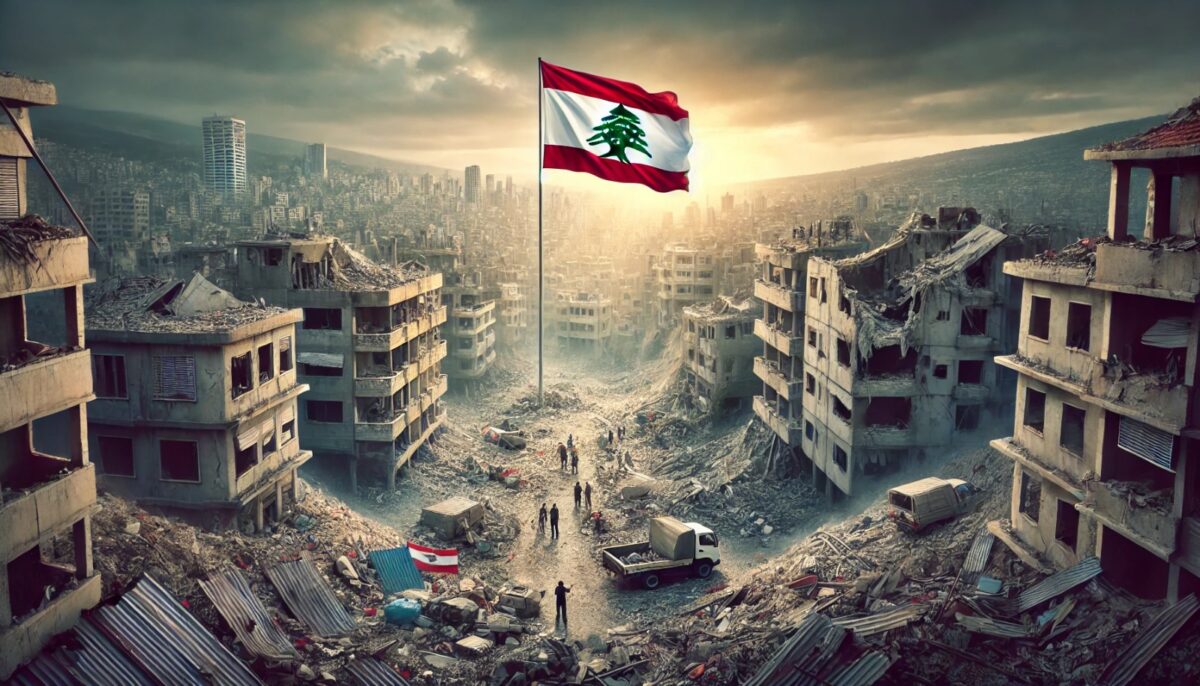
In the aftermath of the 2006 war, Lebanon stood at a crossroads. The destruction left in the wake of the war was a testament to the intense power struggle that had gripped our nation. As the leader of Hezbollah, you emerged not just as a figure of resistance to some but as a dominant force that would go on to shape Lebanon’s political landscape in unprecedented ways.
Since 2006, your organization has repeatedly demonstrated its ability to paralyze the government and the state to achieve its aims. In 2008, when Hezbollah fighters took to the streets of Beirut to protect your interests, it was a reminder, your reminder to us, of who truly held the reins of power. This was not an isolated incident but a pattern of coercion and domination that has continued to this day.
Your journey from a resistance group, formed to protect the Shia community in southern Lebanon, to the strongest entity in the country is a remarkable transformation. Yet, the reasoning that once justified your existence no longer holds. Where the state once failed to protect, now your presence prevents the state from rising to its full potential.
The Lebanese people face a critical question: Are we building a nation together, or are we heading towards separation? Will our future be defined by mutual agreement and cooperation, or by the force of arms and unilateral decisions?
Mr. President, it is time to decide. Will Hezbollah continue to act as a state within a state, or will it allow Lebanon to function as a unified and sovereign nation for a change?
Your decisions have profound consequences for all of us. The 2006 war, the 2008 Beirut conflict, and the continuous political deadlock are not just historical events that we bring up to showcase our knowledge of our modern history; they are scars on our nation’s collective memory. They are reminders of the times when Hezbollah placed its interests above those of everyone else. I still remember your words in 2008, I remember all your words actually, because despite my opposition to the Islamic resistance and how it dominated all resistance in the south, and despite your words in the 1980s about how you see Lebanon as an Islamic state governed by Islamic law, you were, on many occasions at least pre-2000, a phenomenon. Remember when your pictures were held in every country in the Arab world? Do you think about that often? Or does it no longer come to mind that something went wrong along the way?
You once stood against oppression, yet today, your actions contribute to the oppression of the Lebanese state. By maintaining a powerful military wing that operates in accordance to interests that do not represent all the Lebanese people and independent of the national army, you undermine the very fabric of our coexistence. Your influence over governmental decisions has stalled progress, obstructed reforms, and left our economy in ruins.
The Lebanese state cannot flourish under the shadow of a dominant militia. For Lebanon to move forward, we need accountability, law, and order. We need a government that operates without fear of retribution from an armed faction. We need to ensure that all voices, not just those aligned with Hezbollah, are heard and respected.
Sayyed, the time has come for Hezbollah to transform once again. Not into a dominant force that dictates Lebanon’s future, but into a part of a collective effort to rebuild our nation. Today, we have some hard choices to make.
If we are to truly coexist, as you claim to desire, then we don’t need Mohamad Raad deciding who amongst the Lebanese is destroying the country. Instead we need a national dialogue that reconstructs our national identity and formulates a new national pact that represents everyone. The alternative to this dialogue is separation. This option must be acknowledged as it remains a viable path. Separation can happen peacefully, where you and everyone else agree that we are no longer together in this, that we no longer share the same values, and maybe it’s best to end this relationship amicably.
Failing to engage in a dialogue to agree on a national identity, a national pact, or a peaceful separation will inevitably lead us towards enforced separation. Your fighters, who will fight with bricks and stones for what they believe in, are matched by every other Lebanese who will do the same for their beliefs. Are you truly willing to push the country to the verge of another civil war?
The future of Lebanon hinges on our ability to make these hard choices now. Will Hezbollah continue to act as a state within a state, or will it allow Lebanon to function as a unified and sovereign nation where you reassess your priorities and interests to align with the national interests we decide together, where all groups coexist peacefully, where the rule of law prevails, and where no single entity can hold the country hostage?
The choice is yours, and we hold you responsible because the future of our nation hangs in the balance.
Sincerely,
Ramzi Abou Ismail
Ramzi Abou Ismail is a political psychologist and researcher at the University of Kent.
The views in this story reflect those of the author alone and do not necessarily reflect the beliefs of NOW.








